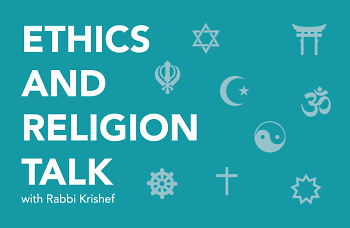Rev. Ray Lanning, a retired minister of the Reformed Presbyterian Church of North America, responds:
“You seem to be unaware that laws to the contrary, there is a ghastly trade of harvesting and selling human body parts that flourishes in the world at large, and no doubt to some extent in our own country. It is said that some harvesters take want they want, even from unwilling parties. A Christian’s greatest joy is to know that, ‘I with body and soul, both in life and in death, am not my own, but belong unto my faithful Savior, Jesus Christ’ (Heidelberg Catechism, Q. 1). We have given our bodies to the Lord, as well as the faith and love of our hearts or souls. We live by this rule: ‘Ye are bought with a price: therefore glorify God in your body, and in your spirit, which are God’s.’ (I Corinthians 6:20). On no account can we accept your premise, ‘It’s my body.’ That would be to turn our backs on Christ and renounce the Christian faith. Rather, the Sixth Commandment (‘Thou shalt not kill,’ Exodus 20:13) requires us to respect the Lord as owner of our bodies, and therefore, ‘that I hurt not myself, nor willfully expose myself to any danger’ (Heidelberg Catechism, Q. 105), much less offer my body parts for sale to the highest bidder. If by the donation of an organ, or by giving blood, I can do good to others, I will do so as an act of self-sacrificial love, and glorify God thereby, asking nothing in return. To make merchandise of body parts is nothing less than the crime of fencing stolen goods.”
Fred Stella, the Pracharak (Outreach Minister) for the West Michigan Hindu Temple, responds:
“What is interesting is that while we may not be able to sell parts of our body, we are allowed to offer them for free. Kidneys and bone marrow are used for transplantation regularly. There is general consensus that a moral component does exist in this conversation.
“The argument I’ve always heard that opposes fees for organs is that it would most likely exploit the poor. Of course, that begs the question, if we care so much about the poor being exploited, why do we allow an economic system to exist that would put people in such a desperate situation in the 1st place? This is the same reasoning that is used when discussing prostitution.
“The only country I know that allows the sale of organs is Iran. Obviously, we are not talking about a paragon of virtue here, at least by western standards. There are people in the medical community who are observing this system. Perhaps one day in America we might change course on this.”
Father Kevin Niehoff, O.P., a Dominican priest who serves as Judicial Vicar, Diocese of Grand Rapids, responds:
“This question raises many ethical and moral questions. Philosophically these questions have plagued the intellectual world for hundreds of years, especially since the Enlightenment of the seventeenth and eighteenth centuries. The period of Enlightenment placed human reason before Christian, specifically Catholic thought.
“Human beings are the image and likeness of God. Human beings are subjects and not objects and deserve the highest level of dignity. Human beings, including any parts of the human body, are not commodities. The crux of the moral and ethical question about selling hair, blood plasma, sperm, and eggs lies in the purpose. We must avoid processes that denigrate humanities’ dignity. Reducing the human body and its parts to commodities destroys human dignity.”
The Rev. Steven W. Manskar, a retired United Methodist pastor, responds:
“The prohibition against the selling of human body parts is to protect vulnerable people from criminal organizations that could exploit them by selling their organs for profit.”
Linda Knieriemen, Senior Pastor at First Presbyterian Church in Holland, responds:
“Hair, plasma, sperm and eggs are replenished when removed, or in the case of human ova, found in abundance. They won’t be missed. But a kidney, even though a human is born with two, can not be replicated if removed. With organ shortages in the United States and most of the world, there is an understandable movement to make such sales legal, or at least tolerated.
“The human body is a God-creation. It is beyond value, it is more than a commodity. The decision of an individual to sell a body part is not isolated but part of a wider market system and thus subject to abuse.
“Allowing sale of body parts biases the rich, or those able to pay for, say a kidney or heart or lung. Potential donors may also be exploited by selling their organs to the person willing to pay the most rather than to the one who has the greatest medical need. The theological principle at stake is not one of morality, but one of justice, fairness and equality. Until these value can be protected, the government is right to prohibit sale of irreplaceable body parts.”
This column answers questions of Ethics and Religion by submitting them to a multi-faith panel of spiritual leaders in the Grand Rapids area. We’d love to hear about the ordinary ethical questions that come up in the course of your day as well as any questions of religion that you’ve wondered about. Tell us how you resolved an ethical dilemma and see how members of the Ethics and Religion Talk panel would have handled the same situation. Please send your questions to [email protected].
The Rapidian, a program of the 501(c)3 nonprofit Community Media Center, relies on the community’s support to help cover the cost of training reporters and publishing content.
We need your help.
If each of our readers and content creators who values this community platform help support its creation and maintenance, The Rapidian can continue to educate and facilitate a conversation around issues for years to come.
Please support The Rapidian and make a contribution today.
